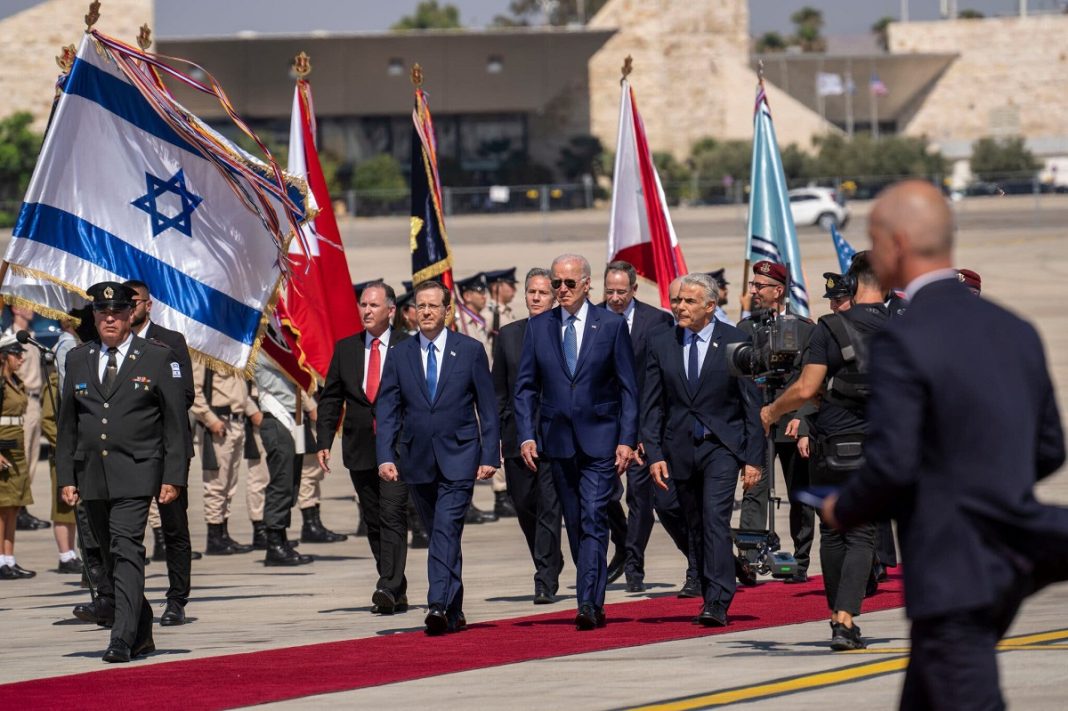Biden will spend two days in Jerusalem on talks with Israeli leaders, including interim Prime Minister Yair Lapid and former Prime Minister Benjamin Netanyahu, before meeting Palestinian Authority (PA) President Mahmoud Abbas on Friday in the occupied West Bank.
He will then take an unprecedented direct flight from Israel to Jeddah, Saudi Arabia – as the kingdom does not recognise Israel’s existence – for talks with Saudi officials and to attend a summit of Persian Gulf allies.
Israel, which is mired in political gridlock before a November 1 election, says it is raising 1,000 flags across Jerusalem to welcome the US leader, who has not reversed former President Donald Trump’s controversial decision to recognise the city as the capital of Israel.
Palestinians see occupied East Jerusalem as their capital and, before the visit, have accused Biden of failing to make good on his pledge to restore the US as an honest broker in the conflict.
Biden will meet Abbas in the occupied West Bank city of Bethlehem on Friday, but there is no expectation of bold announcements towards a fresh peace process, meaning the visit may merely deepen Palestinian frustration.
The talks will mark the highest level of face-to-face contact between US and Palestinian officials since Trump adopted a number of policies in favour of Israel after taking office in 2017.
The United States wants to reopen its consulate for Palestinians in Jerusalem, located in the west of the city, which was closed by Trump in 2019.
US officials say the trip could produce more steps toward normalization between Israel and Saudi Arabia, historic foes but also two of America’s strongest allies in the turbulent region.
A centerpiece of Biden’s visit will be talks in Jeddah with Saudi leaders including Saudi Crown Prince Mohammed bin Salman, accused by the US intelligence community of being behind the 2018 murder of Washington Post journalist Jamal Khashoggi.
Biden, under pressure at home to bring down soaring gasoline prices that have damaged his standing in public opinion polls, is expected to press Persian Gulf allies to expand oil production to help bring those prices down.
